THE story reads like a sitcom pilot. A dual-military "blended" middle-American Family spanning three generations attempts to establish a homestead in Korea while puzzled Soldiers wonder how they all missed the bus stop at Yongsan and perplexed locals attempt to communicate with neighbors who don't understand a word of Hangul (the Korean language).
It sounds too crazy to attempt in 2010, let alone 2007. It sounded that way to Sgt. 1st Class Charles A. Dennis, noncommissioned officer in charge of the Division Special Troops Battalion chemical section, and Spc. Michelle Dennis of the division intelligence shop. That's why they left their children at Fort Leonard Wood, Mo., when they departed for Korea in the summer of 2007. The couple united at Camp Hovey, moved into quarters and began their assignments, his with the 4th Chemical Company and hers with Company A, 1st Brigade Special Troops Battalion, 1st Heavy Brigade Combat Team, 2nd Infantry Division.
"We had a perfect Family care plan," Michelle recalled with a smile. "The Family was going to stay in place at Fort Leonard Wood with my daughter and her husband while we both did our year in Korea. Then we'd come back to the States and reunite before they left for their next assignment."
But fate intervened. Michelle's son-in-law received unexpected reassignment orders, followed promptly by deployment orders. The couple faced a dilemma no parent would envy.
"We either had to legally transfer custody of the kids to my daughter and leave them all with her or bring everyone to Korea," Michelle recalled. The small handful of command-sponsored Families lived at Yongsan Garrison at the time, a situation that presented transportation and distance, not to mention mission obstacles for a dual-military 2nd ID couple.
In consultation with remarkably engaged company, battalion and brigade-level leaders, the Dennises arrived at an innovative, even unprecedented solution: settle in 2nd ID's "Warrior Country." Helpful division intelligence leaders agreed to transfer Michelle Dennis to division headquarters. They'd base the Family in Uijeongbu, enroll the kids in the Christian International School and apply for permission to operate private vehicles for required commutes.
So they came. The occupying force included Michelle's four mature children from a prior military marriage, Nakita Bledsoe (herself married to a Soldier serving with the 25th ID), Charise Gawreluk, Dominic Gawreluk and Adrian Gawreluk, along with the Dennis couple's 9-year-old son Cameron and even their 2-year-old granddaughter Kadince Bledsoe.
At first, the bureaucracy couldn't digest the unconventional situation, notwithstanding command approval. "They said, 'We don't do that in Area I,' I said, 'You do now,'" Michelle recalled.
"When we first arrived it was an almost eerie atmosphere," she added with a laugh. "There were no Families or children around. People looked at you funny when they saw kids. I almost felt guilty. It took around six months to feel comfortable."
Thanks partly to the efforts of pioneer Families like hers, things changed.
"It's spreading like wildfire now," she said. "Once they realized you could bring your Family and command-sponsor, everyone started to see this isn't a bad place to be. They're bringing their Families and staying longer, which is also an advantage because everyone's not rotating every six months, so you get continuity."
As an enlisted leader of two organizations at two bases during his current tour, as well as an interested father, Charles viewed the transformation of the division footprint from a unique perspective.
"I've seen a lot of improvements," he said. "You see Family members all over the place now. I think people are a lot happier when they have their dependants with them. It's good for morale."
After resolving administrative, transportation and scheduling dilemmas, the Dennises enthusiastically embraced life in Uijeongbu. Taking advantage of a fortuitous vacancy, they found an apartment right across from their children's school. The tribe seized on leisure and recreation opportunities throughout the country. The children toured their host country extensively as part of youth and sports organizations as well as with their Family.
The Dennises developed into significant community leaders in their own right. As Camp Red Cloud noncombatant evacuation operations warden, Michelle personally meets and greets most incoming Family members. Dennis Family members make frequent appearances at post facilities, turning up regularly at the Camp Red Cloud bowling alley, golf course and Community Activity Center. They provide expert guidance to incoming personnel confronting Family issues and engage anyone from civilian clerks manning administrative centers to key leaders-up to and including Maj. Gen. Michael S. Tucker, the 2nd ID commander, and Gen. Walter Sharp, the United States Forces Korea commander-on matters impacting Families.
The presence of older children in the home provided the Dennises unique advantages and flexibility. Not many young mothers in the area can rely on adult, on-site babysitters during important training missions, Family events and medical appointments, for instance.
As Area I pioneers, on the other hand, Charles and Michelle Dennis confronted and resolved problems transparent to their successors. The Dennises had no difficulty identifying the most challenging part of the command-sponsorship process.
"The paperwork was the worst part, without a doubt," Michelle said. "It was all strange to the housing office at first. They just didn't know what to do with us. Were we dual military' Were we joint domicile' Then, when we finally finished all the paperwork up here it would grind to a halt at Yongsan. We'd call down to Yongsan and they'd tell us we couldn't be command-sponsored because we were in Area I."
"I have four large garbage bags full of old paperwork," she added with a smile. "I really need to get rid of it sometime, but I'm afraid I'll need it for something."
"We had some rough spots, especially at the beginning," Charles added.
"It's unnecessary stress," Michelle continued. "All the paperwork and all the bureaucracy is the most stressful part of Army life these days. We can deal with stress on the job. It's part of what we do. But it seems like everyone you deal with wants the forms just a little different. Nothing's ever good enough."
And yet a silver lining hovers among the ominous mountains of paperwork: Supportive leaders helped the Dennises resolve every administrative crisis they confronted.
"We finally took it to the sergeant major and he helped a lot," she said, ultimately reciting a virtual roll call of key battalion, brigade and division enlisted leaders and officers who aided the Family's command-sponsorship efforts.
"The chain of command was always supportive," added Charles. "When we hit rough spots-and there were definitely some rough spots-we brought in the chain of command and they always helped us. This wouldn't have been possible without the support of the chain of command from battalion headquarters all the way to USFK."
Almost three years after the Dennis "advanced echelon" reached Incheon International Airport, and more than two years after the last child arrived in-country, the extended and extensive Family seems happy with their decision.
"I haven't had any regrets," Charles said. "This has made an impact-a positive impact-on the children. Being with mom and dad rather than having to stay with relatives in the States is a much better situation for kids."
The kids concur.
"I'm open to everything so I've really enjoyed the culture here," said Adrian Gawreluk, an 18-year-old senior at the ICS. "I've made a lot of Korean and half-Korean friends. I've had a chance to see many other places in Korea and even other countries. It's very nice and very beautiful here."
The scholar-athlete described a wide array of unique cultural opportunities she enjoyed during her time in Korea. How many American high school students compete in basketball tournaments in Japan or visit China for their senior trip'
Despite some initial trepidation, she doesn't regret the Family decision to move en masse to the Red Cloud area.
"At first I wanted to go back, very badly. But now I'm happy I've had the chance to experience this beautiful country. I think I'll appreciate it more and more as I get older. If I could do it over again I definitely would, maybe just not for so long," she said with a laugh.
Michelle takes pride in her role as a pioneer and an advocate for other Families. After 24 years as a military wife-the last several of them as a dual-military parent-she brings valuable insights and experience to Camp Red Cloud and the surrounding community. Her time in Germany provided a comparative base and, in her mind, a model for how successful overseas Family infrastructure can develop and flourish. If, she said, Family life in Uijeongbu and Dongducheon isn't precisely comparable with that of Heidelberg or Wiesbaden, it's moving in the right direction.
"The Christmas tree lighting last year was very special," Michelle said. "It was the first time the school performed at one. I really had to do a double take looking at all the kids and Families here.
"There'd be like two Families when we'd go to these things before," she continued. "Now there were so many. I thought, 'Wow, this is really great.' It's a much healthier environment for everyone. The 2nd ID home is more like home now."
Master Sgt. Michael Pintagro served as the 2nd Infantry Division public affairs chief when he wrote this article. He has recently been assigned as the noncommissioned officer in charge of the Plans Division, Office of the Chief of Public Affairs.
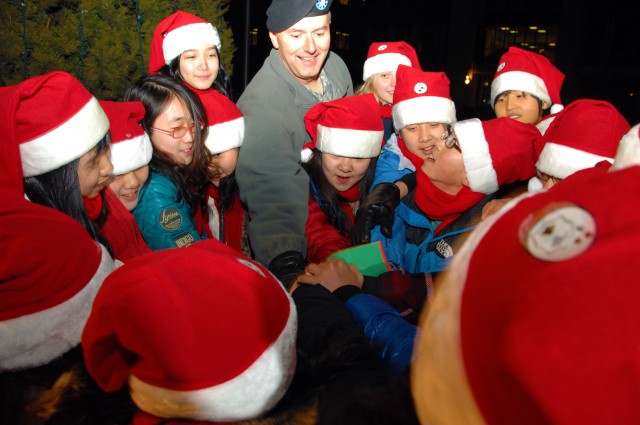

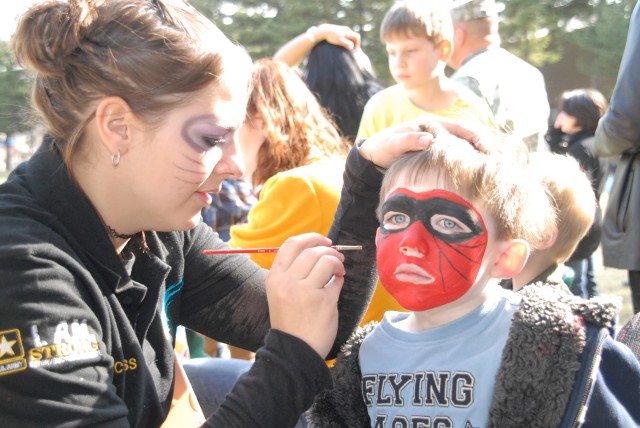
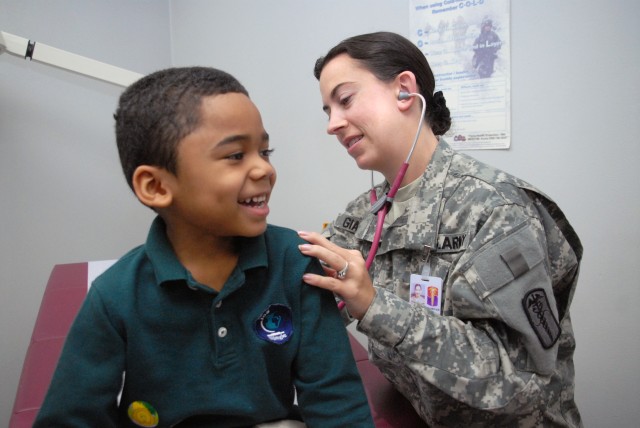
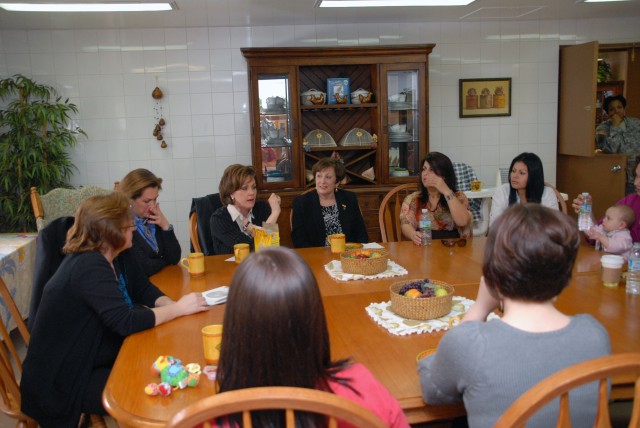
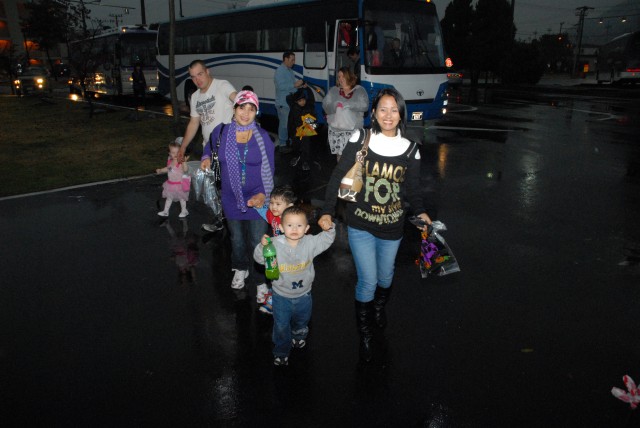
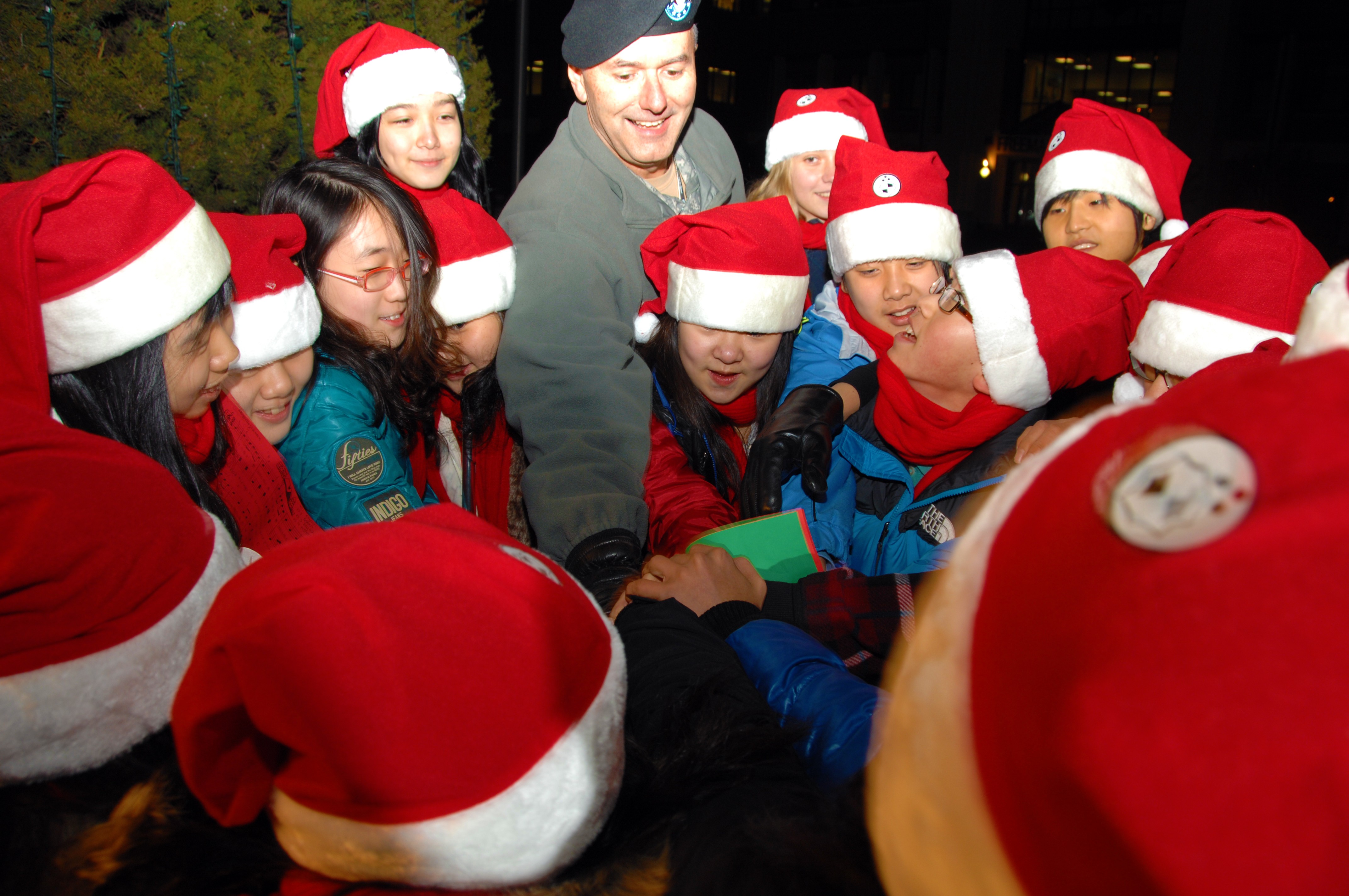

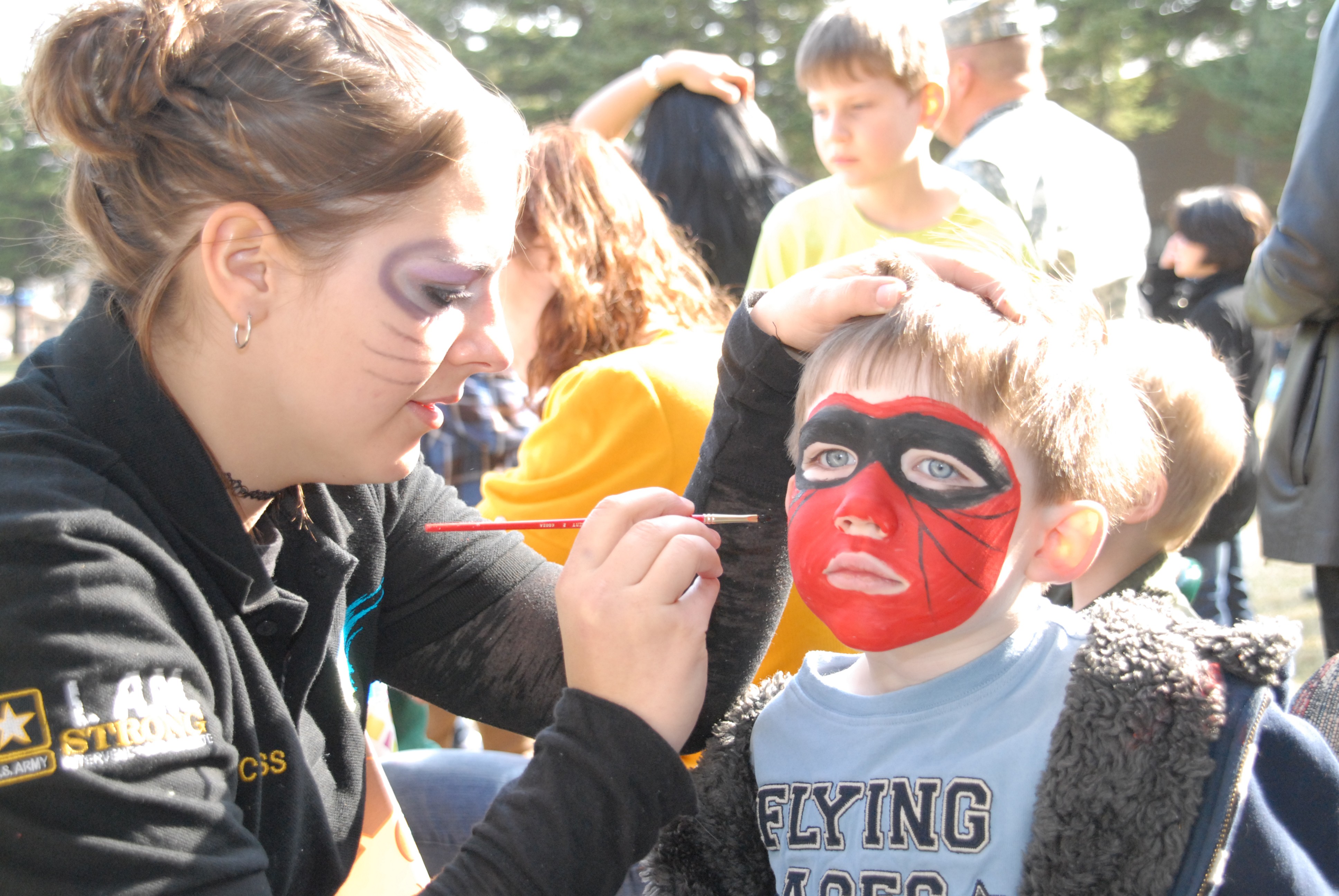
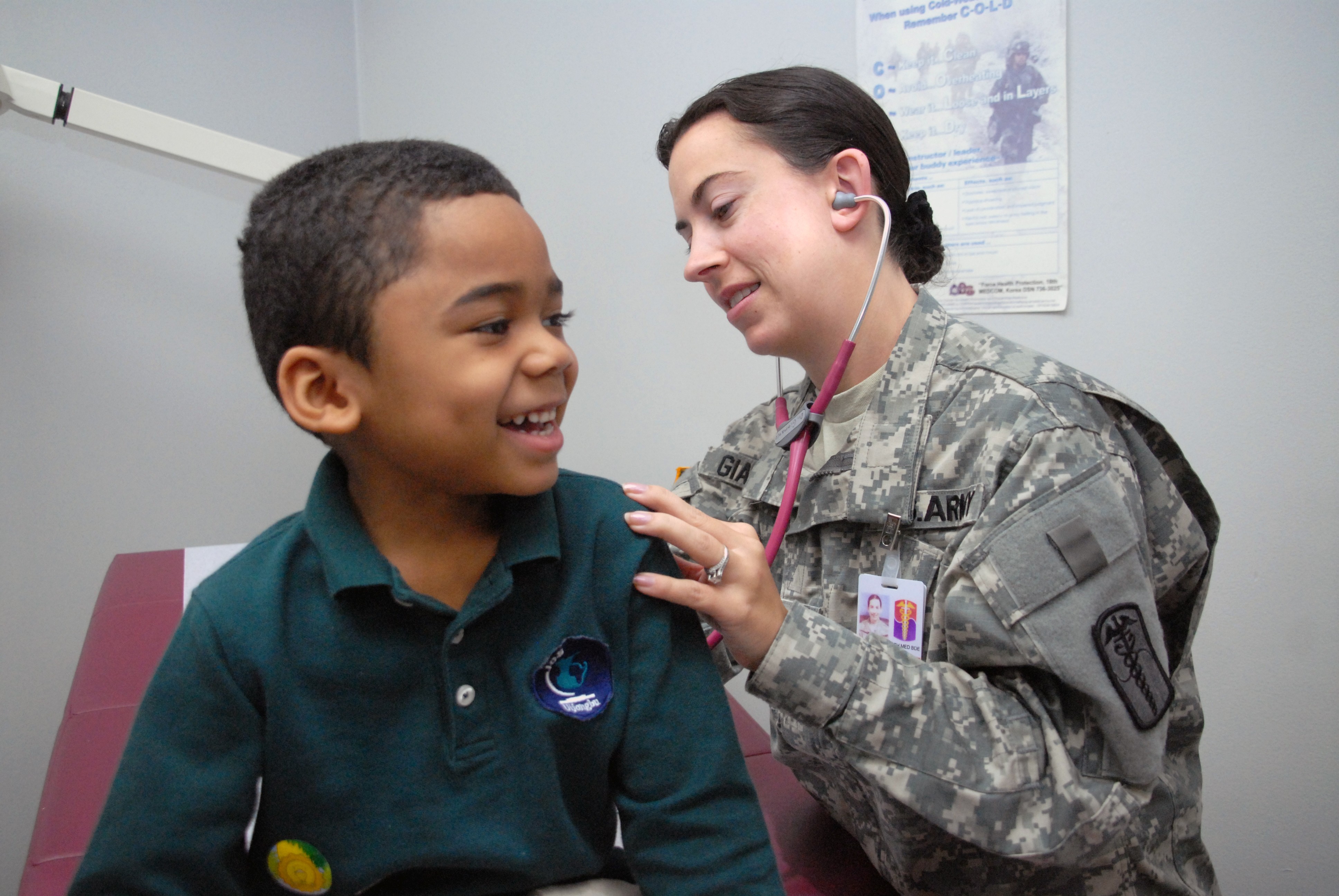

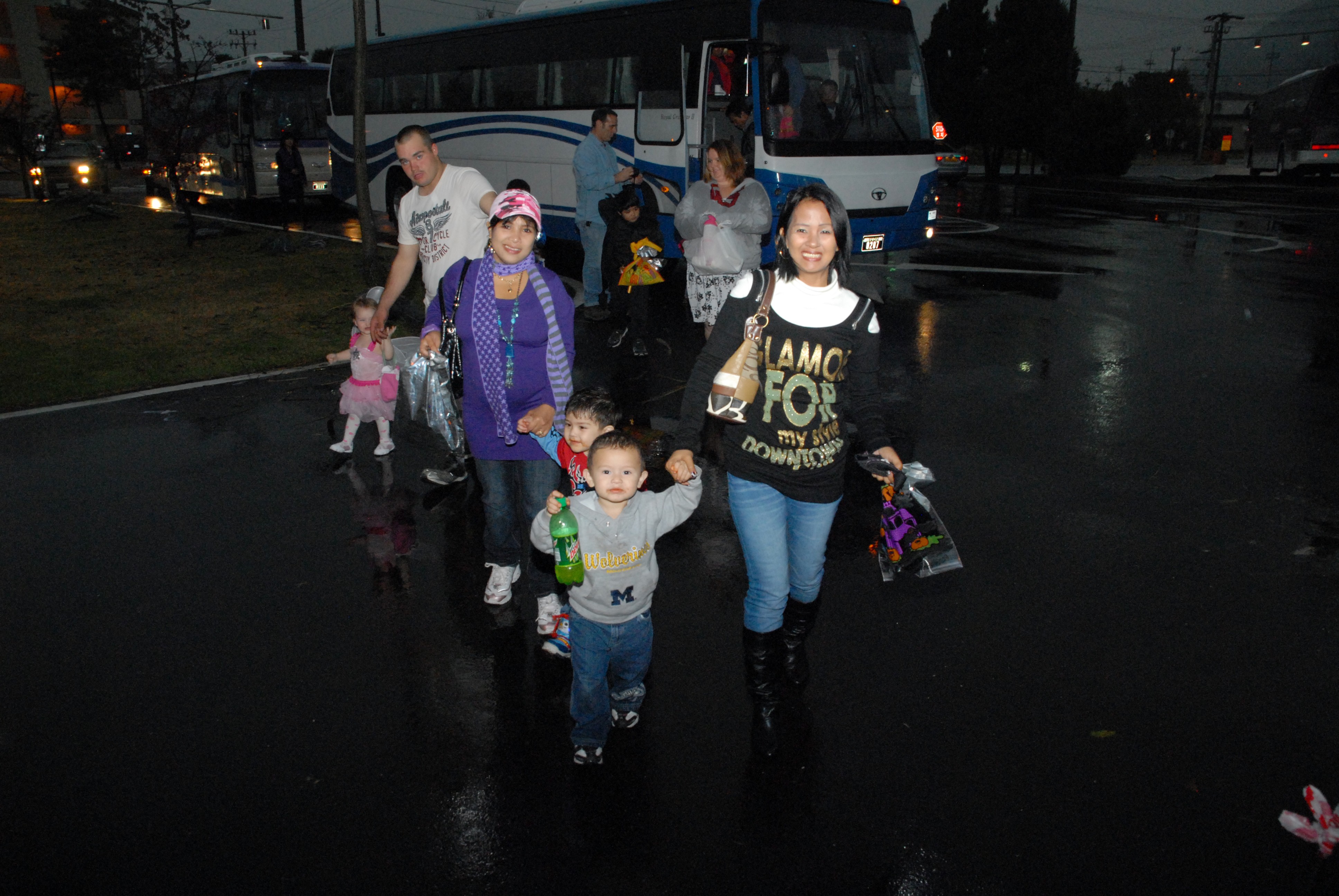
Social Sharing